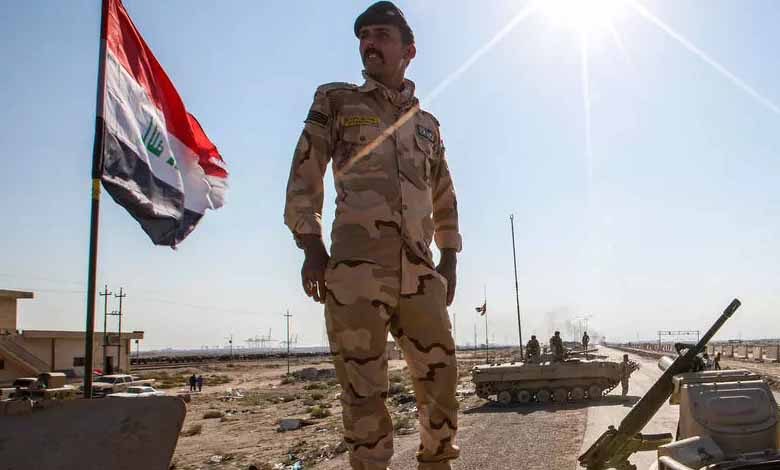About the Iraqi battle between the state and militias

The problem in Iraq is one of vicious conflict with state-based militias.
It has a clear agenda that belongs to a regional state, which has a project aimed at domination and expansion in the region. Militias penetrate state institutions and agencies and try to control them and confiscate their decisions in favor of their agenda, which transcends the geography of the state on the one hand, and the true state, which wants to rule the constitution and administer the country through the three presidencies, the Presidency, the government and the parliament, as well as official institutions, including the army, the judiciary and the security forces, on the other hand.
This is the reality of the renewed battle between those who want the state with all the constitutional, legal and political meanings and meanings the word means, and those who want “the no-state”, with its chaos, sectarianism and open conflicts that destroy society and identity.
In the current battle between the state and the militias in Iraq, the state has seemed to be moving in a minefield since Mustafa al-Kazimi took over as the head of the government, not because of the rise of the militias to the brink of war against ISIS, and their increasing influence, especially after the PMF was annexed directly to the prime minister’s office, but because of the sense of power that these militias draw from Iran, and the latter’s ability to renew the map of the militias by spawning new groups continuously, to the extent that every now and then we have a secret and ambiguous group capable of stirring chaos, fear and murder. Perhaps the last of these groups was the armed group, which called itself “Quarter of God,”. Everyone remembers the military parade that this group organized in the Iraqi capital a month before, and the destruction of Saleh’s actions of economic channels and party’s headquarters.
The same situation was repeated, albeit in a different way, when the Iraqi security forces arrested Qasim Musleh, the commander of the Hashd forces in western Anbar, on charges ranging from killing activists to being behind a rocket attack on the headquarters of the American Embassy in Baghdad. The militias reviewed the military muscles in the heart of the Green Zone in Baghdad, cut off the entrances to it, and surrounded the headquarters of the Iraqi Prime Minister, threatening the release of “Musleh” before the Iraqi Army forces intervened and efforts succeeded in avoiding a bloody confrontation, which did not mean the end of a possible confrontation between the Iraqi Army and the militias, especially in light of the latter’s insistence to act outside the constitution, law and official decisions.
Every time the militias try to turn the tables on the state, they find a political agenda, which is really an Iranian agenda par excellence. Whenever Iraq tries to approach its Arab environment, the militias move to abort its movement. Every time the government tries to regulate the relationship with the United States, it finds an attack on the headquarters of the American embassy or its military bases in Iraq.
This is how militias have become a force obstructing Iraq’s political choices and trying to overcome difficult economic and security conditions, to the extent that fears have threatened the holding of the elections scheduled for October 10. The elections, which are to be counted on in Iraq’s transition to a new phase, have as their first and foremost address the complete restoration of the state.
In an attempt to look at the current battle, there are those who believe that Al-Kazimi has many cards. The first is the broad popular desire to get rid of the violence of the militias and their destructive role. The second is the activation of the constitution, laws and the judiciary in attacking the militias and limiting their role and influence. The third is the broad Arab and international support for him in the battle for the sovereignty of the state and the law over chaos and sabotage. But the foregoing does not lessen the difficulties and methods used between those who see that the battle is resolved through the strong use of these cards at home, and those who believe that the battle is not primarily with the inside, but with the outside, specifically Iran, using all the means that motivate them to stop their support for these militias, and for their interference in Iraqi internal affairs, and to limit the influence of their groups and to reduce their independent political interests there. There is the responsibility of Iraq and its Arab countries to achieve all the Arab and its goals.
Iraq spends its difficult days between the state or no-state projects, testing its options with blood and a livelihood, while the compass depends on the ability of each party to test the use of its papers, impose its conditions in the confrontation, and bear the tools of salvation from the non-state project, so will Al-Kazimi, along with the national forces and the Iraqi people succeed in transferring their country to the stage of victory for the project of the state?












